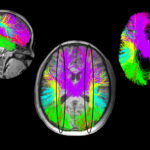Meet Meghan: Making clinical research meaningful

I’ve been working for the Experimental Therapeutics and Interventional Trials Center for nearly four years, the last two as a clinical research specialist, serving as a project manager for clinical research studies.
What makes my job interesting is doing something a little different every day — anything from startup procedures to coordinating study visits with patients and families to working with the FDA and IRB. I wear many hats.
Our group works with researchers from different departments throughout the hospital, which means I’m always learning something new. So, for example, I’m working with Cardiology and Rheumatology on a research study for patients with Kawasaki disease. And, I’m also working with the Division of Immunology to determine if a fecal transplant may treat peanut allergies. In addition, I’m helping Nephrology with a blood pressure study.
At first, it was a pretty big learning curve because I hadn’t done a lot of research, but then I completely fell in love with it. I like seeing research work well for patients. I want them to feel supported, so that participating in a study is a meaningful experience for them.
Meghan Fitzgerald is a clinical research specialist in ICCTR’s Experimental Therapeutics and Interventional Trials Center.
Learn more about the Experimental Therapeutics and Interventional Trials Center.
Related Posts :
-

Parsing the promise of inosine for neurogenic bladder
Spinal cord damage — whether from traumatic injury or conditions such as spina bifida — can have a profound impact on bladder ...
-

Unveiling the hidden impact of moyamoya disease: Brain injury without symptoms
Moyamoya disease — a rare, progressive condition that narrows the brain’s blood vessels — leads to an increased risk of stroke ...
-

Forecasting the future for childhood cancer survivors
Children are much more likely to survive cancer today than 50 years ago. Unfortunately, as adults, many of them develop cardiovascular ...
-

Genomic sequencing transforms a life: Asa’s story
Asa Cibelli feels like he’s been reborn. The straight-A middle schooler plays basketball and football, does jiu jitsu, is ...





